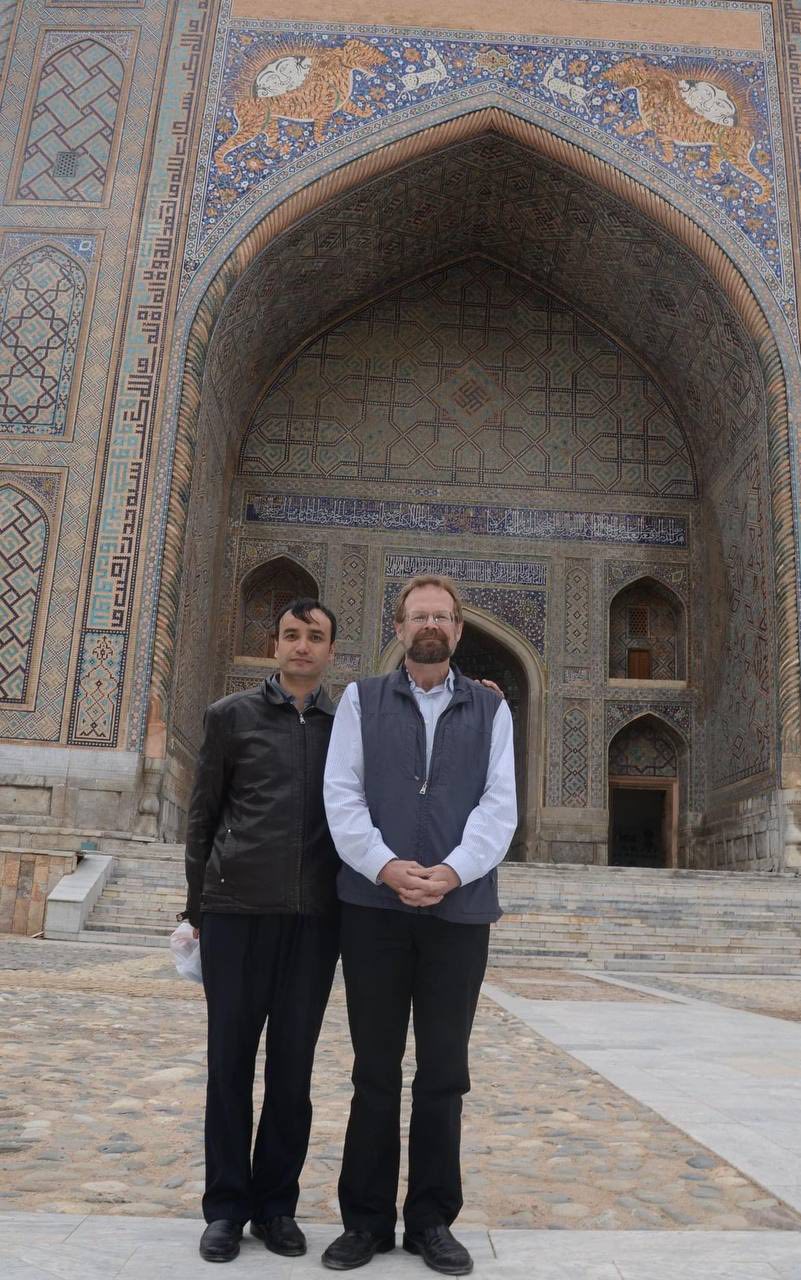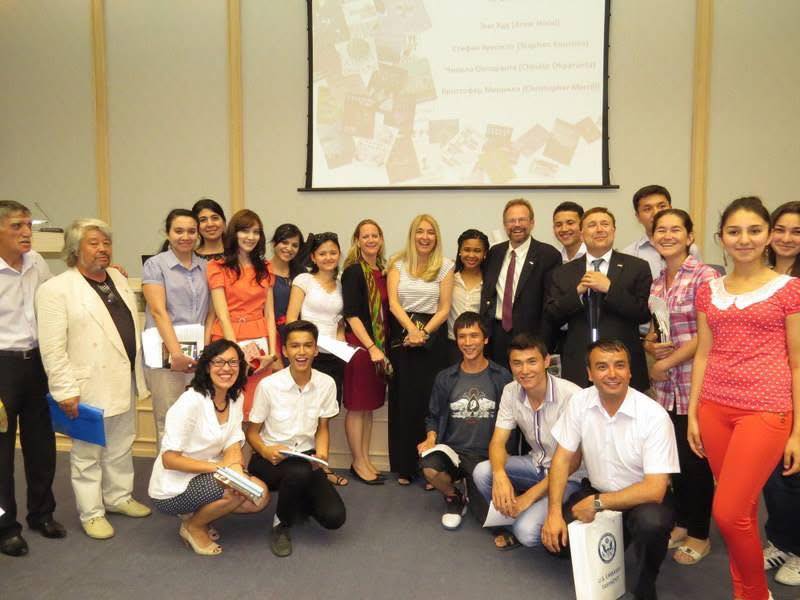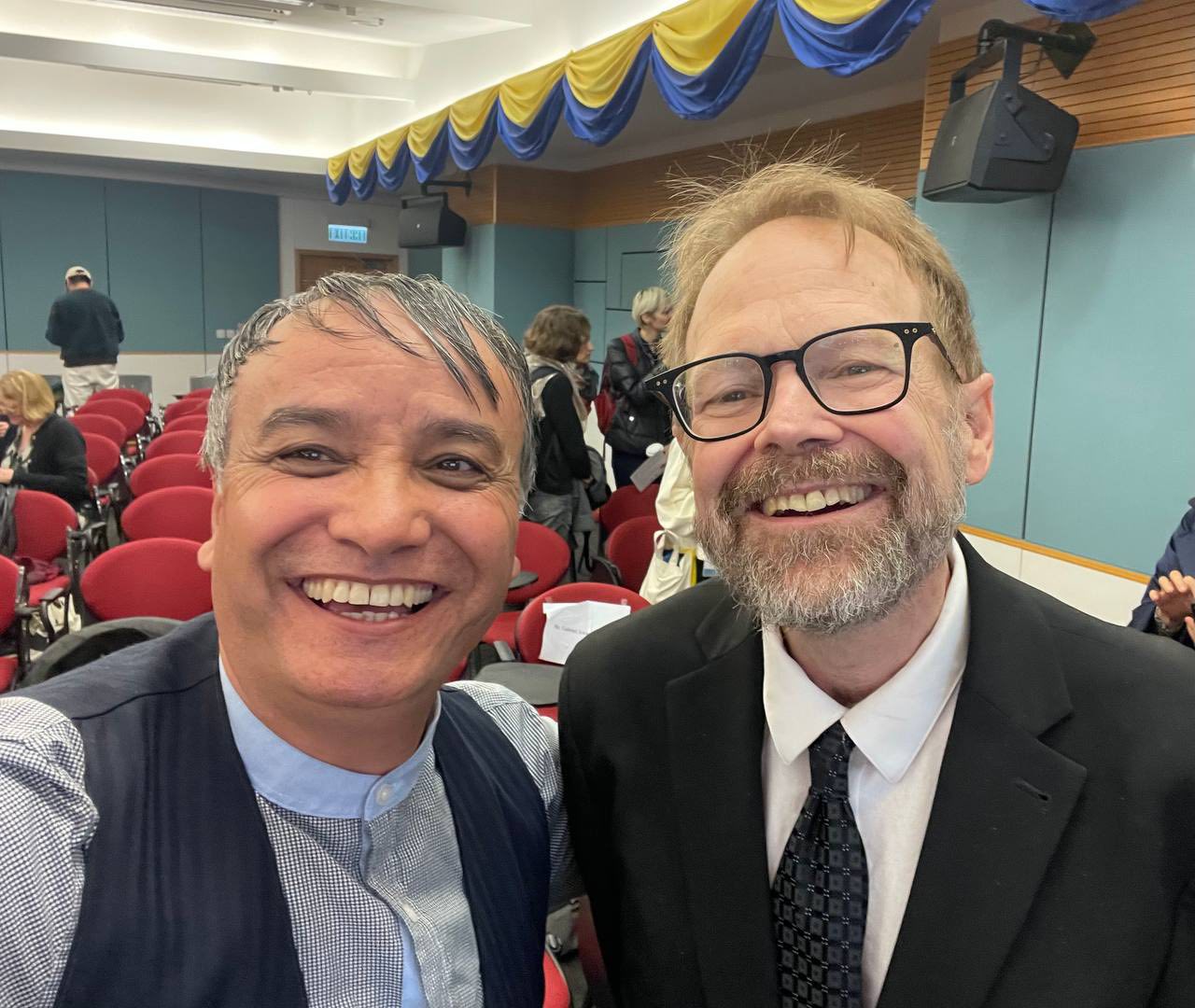A Tribute to My Dear Friend, Christopher Merrill

Many writers have learned that our dear friend Christopher is stepping down after 25 years as Director of the International Writing Program (IWP) at the University of Iowa — the world’s largest and most influential residency program for writers. I feel both proud and emotional as I think of all that he has done for world literature, and how much he has meant to me personally.
Christopher was the one who in 2004 selected me as the first writer from Uzbekistan to participate in the International Writing Program. I was only thirty years old then — a young poet full of dreams — and he saw something in me that even I was not yet fully aware of. That opportunity changed my life. It opened doors, expanded my world, and taught me what literary dialogue truly means.
Christopher not only supported me but also encouraged me to think bigger — to create literary bridges between cultures. It was his example that inspired me to establish an independent international writer and artist residency in Uzbekistan, which has since hosted more than a hundred writers, poets, and artists from across five continents.
He and his wonderful team at IWP also kindly accepted my nominations of several Uzbek poets and writers to attend the program over the years. Thanks to him, the voices of Uzbek authors reached the international stage — read, discussed, and celebrated in Iowa and beyond.
I will never forget the first time he visited Uzbekistan. That was during the time of the first president, when it was extremely difficult for foreigners to come to our country. It was almost a comedy of bureaucracy: Christopher had already purchased his ticket and was sitting at the airport in Iowa, while I was sitting in my office in Tashkent, anxiously waiting for the Uzbek Foreign Ministry to approve his visa. I still remember that strange mixture of hope and despair. The working day had ended, the program had already been canceled, and I was heading home disappointed when suddenly — a phone call! The visa was approved! But only the visa — not the program.
So there he was — arriving in Tashkent with no official agenda, and there I was — deciding to take full responsibility. I put together a new program for him myself. We met with poets, students, and artists in small but warm circles in Tashkent, traveled to Namangan, and even visited the house-museum of Robiddin Is’hoq at the foot of the mountains, together with my poet friend from Namangan. It was a magical, spontaneous journey — full of laughter, poetry, and human connection.
I still remember how, in Namangan, the local newspaper proudly published an article on the front page: “An American Poet Visits Our City.” And the head of the regional department of the Writers’ Union was surprised to read it — wondering how such a visit could have escaped his notice!  At that time, even organizing such a meeting required courage. While in Tashkent, some officials didn’t want to take any risks — one of them even told me that “Do‘rmon — a writers’ residency neighborhood on the outskirts of Tashkent — is not an open gate for foreigners.” Yet, in Namangan, people’s warmth and curiosity were boundless.
At that time, even organizing such a meeting required courage. While in Tashkent, some officials didn’t want to take any risks — one of them even told me that “Do‘rmon — a writers’ residency neighborhood on the outskirts of Tashkent — is not an open gate for foreigners.” Yet, in Namangan, people’s warmth and curiosity were boundless.
When Christopher visited Uzbekistan for the second time, the atmosphere had changed dramatically. He came with a group of American poets and writers, and this time everything was officially approved. Even the Writers’ Union — which had once hesitated — welcomed them with open arms, and the guests were wrapped in traditional Uzbek robes. Such was the difference when a simple dipnote (diplomatic note) arrived from the Ministry of Foreign Affairs!
Beyond these official stories, my memories of Christopher are deeply personal. We spent long hours talking — about poetry, faith, friendship, and the future of literature — as we drove across the Ferghana Valley, Samarkand, and Bukhara. We stopped by museums, visited ancient monuments, and often translated poems together in the car. I still hear his voice reading lines by Uzbek poets, and remember how he admired the spirit of our land and its people.

We also shared unforgettable moments abroad. I met Christopher again in Germany during the Leipzig Book Fair, and later in Hong Kong at the International Literary Festival, where we read together before wonderful audiences. His readings were always full of sincerity and grace — the same qualities that define him as a poet and human being.
Back in Uzbekistan, I especially cherish our time in Tashkent, Namangan, and Bukhara — those quiet walks, meaningful talks, and the joy of bridging two distant worlds through words.
I admire Christopher not only as a poet of rare depth but also as a builder of human and cultural bridges. With my Uzbek poet friend, we even published his poetry collection in Uzbek — something that remains a source of great pride for me. In the US, he also encouraged me to reach out to literary journals to publish my work.
Although he is stepping down after 25 remarkable years as Director of the International Writing Program, I sincerely hope he will continue to support it and inspire new generations of writers. The last time we met was in Hong Kong, and I truly hope our paths will cross again soon — perhaps in Uzbekistan, where his presence has always brought light, inspiration, and friendship.
Thank you, dear Christopher, for your kindness, your trust, and your belief in the young poet from Uzbekistan all those years ago! Our friendship and shared memories remain among the most meaningful chapters of my life. Wishing you and your beautiful family good health and all the best for the next exciting chapter of your journey!





